National Work
God Provides the Harvest
The Rev. Steven Struecker is sowing seeds as both a full-time farmer and a full-time pastor.
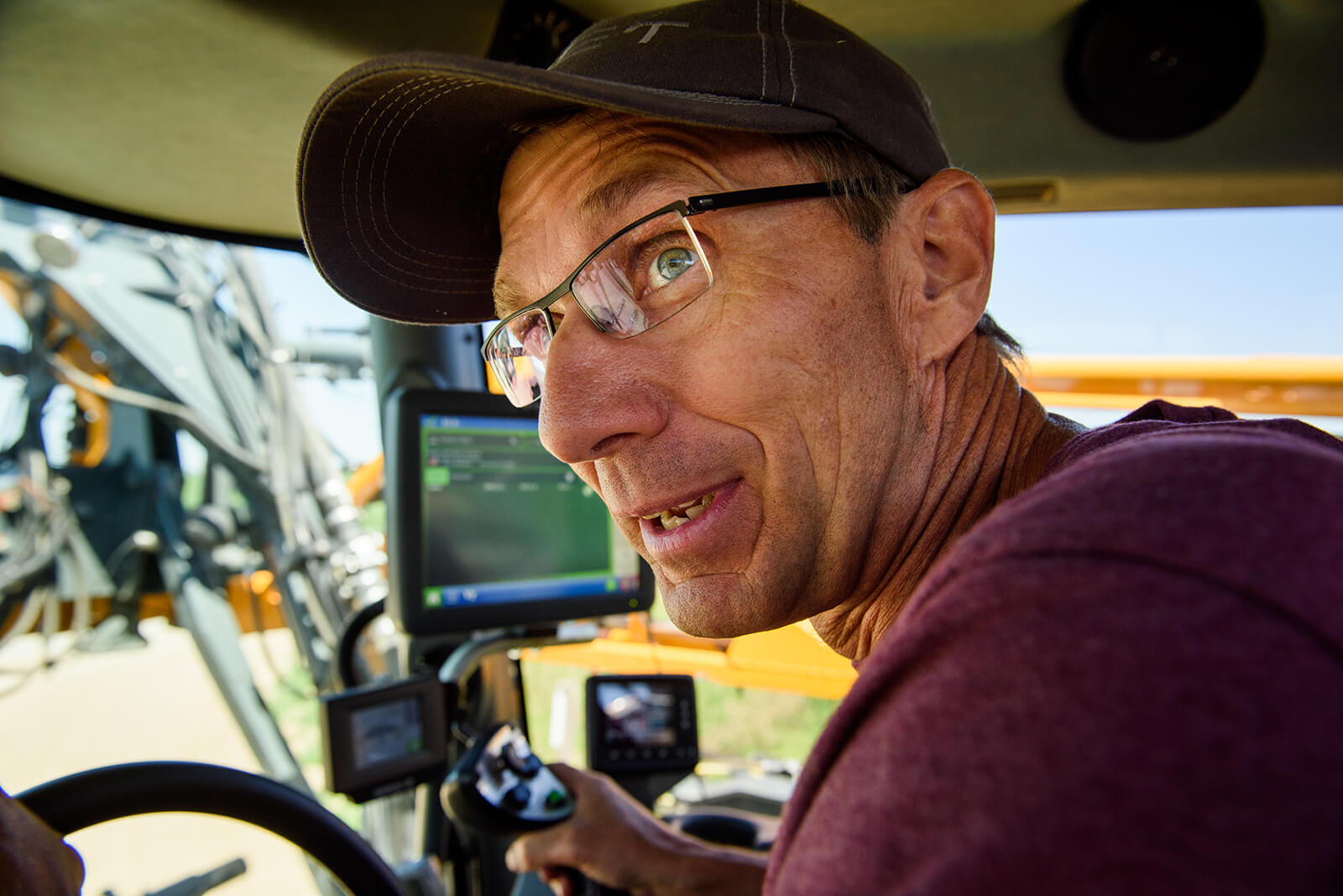
Jesus plants seeds. He preaches and teaches. He harvests. He raises. He loves.
And so does Pastor Steven Struecker, who rejoices in his call to pastor two small churches in rural Iowa. He looks like a pastor in the church and a farmer on the farm. And he knows that God has called him to each. And for this, he is thankful.
He’s humbled to be called to serve them with the Word. The people are blessed to hear the Word proclaimed. And the Church goes on. And God is faithful to His promises.
“The farming and the parish ministry have worked well together because they are similar,” Struecker says, as he reflects on his two roles. “We have to keep the weeds out and nourish the seed. When God’s Word comes into our lives, it strengthens us and gives us hope.”
Struecker is both a full-time farmer and a full-time pastor to his flocks at Immanuel Lutheran Church, Livermore, Iowa, and Zion Evangelical Lutheran Church, Lu Verne, Iowa.
Meet the Rev. Struecker at his farm in Iowa. Cinematography/Sound by Al Dowbnia. Edited by Amanda Booth.
“I’ve been farming for 34 years, so I’ve planted 34 seasons. We put a seed in the ground, and it grows. That’s about the only thing that is the same. Everything else has changed.”
The technology has advanced, but the seeds still have to be planted. The seeds are now engineered differently and the machinery involved in the planting has improved, but it is still a seed in the ground growing by God’s provision of rain, soil and sun.
The Word will not return void but will accomplish what God desires. And so Struecker preaches every Sunday. As he is called to proclaim, he serves the people in these two congregations with the Word and the Sacraments. The Spirit works through these means to produce a harvest.
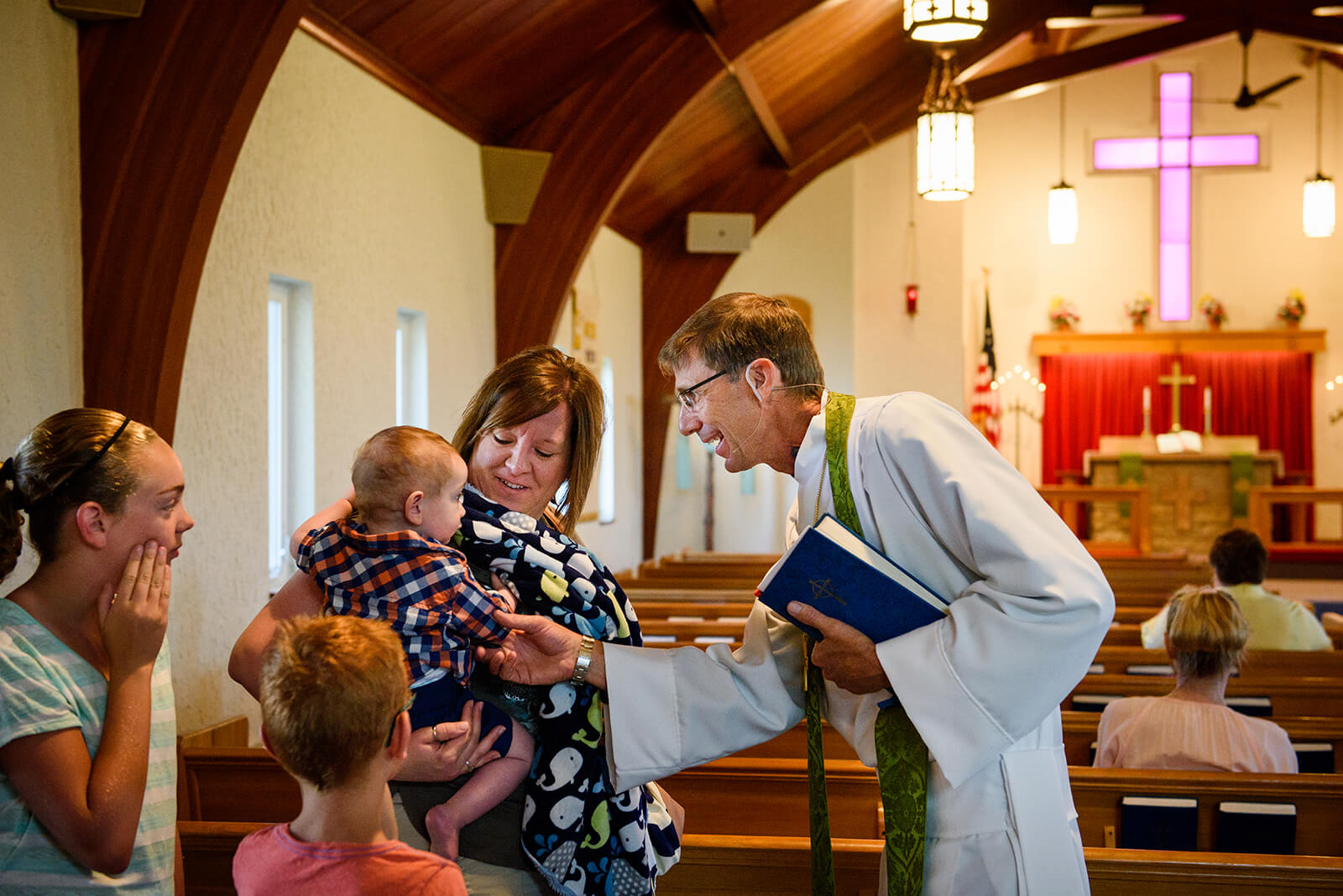
Sowing and Reaping
Life in rural America is cyclic — there are times of intense work in the spring and fall during planting and harvesting. Not that there isn’t also plenty of work to do in the winter and summer.
There is a rhythm in the Church Year as well. The festivals and the observations of the life of Christ dominate the first half of the Church Year. During the summer, many churches scale back their Sunday school and Bible class opportunities. Yet with vacation Bible school and other activities, there is always plenty of work.
Over 3,000 acres demand Struecker’s attention — a vocation he shares with two others. Corn and soybeans require work, with all the attendant equipment and chores to keep the farm running.
Two congregations look to him as their shepherd. Members require work and attention. Weekly worship and Bible class require preparation and time. Confirmation classes, ladies’ guild and other activities fill his calendar. Shut-in calls and hospital visits are constant opportunities for service.
“I drop everything if I am called for an emergency at church,” Struecker says, despite the fact that he is “very busy on the farm in the spring and the fall.”
This is the reality of Struecker’s vocation. He serves in two arenas. He refuses to see himself as a part-time pastor. Instead, he knows that ministry is a full-time job. And he is happy to serve with all that he has.
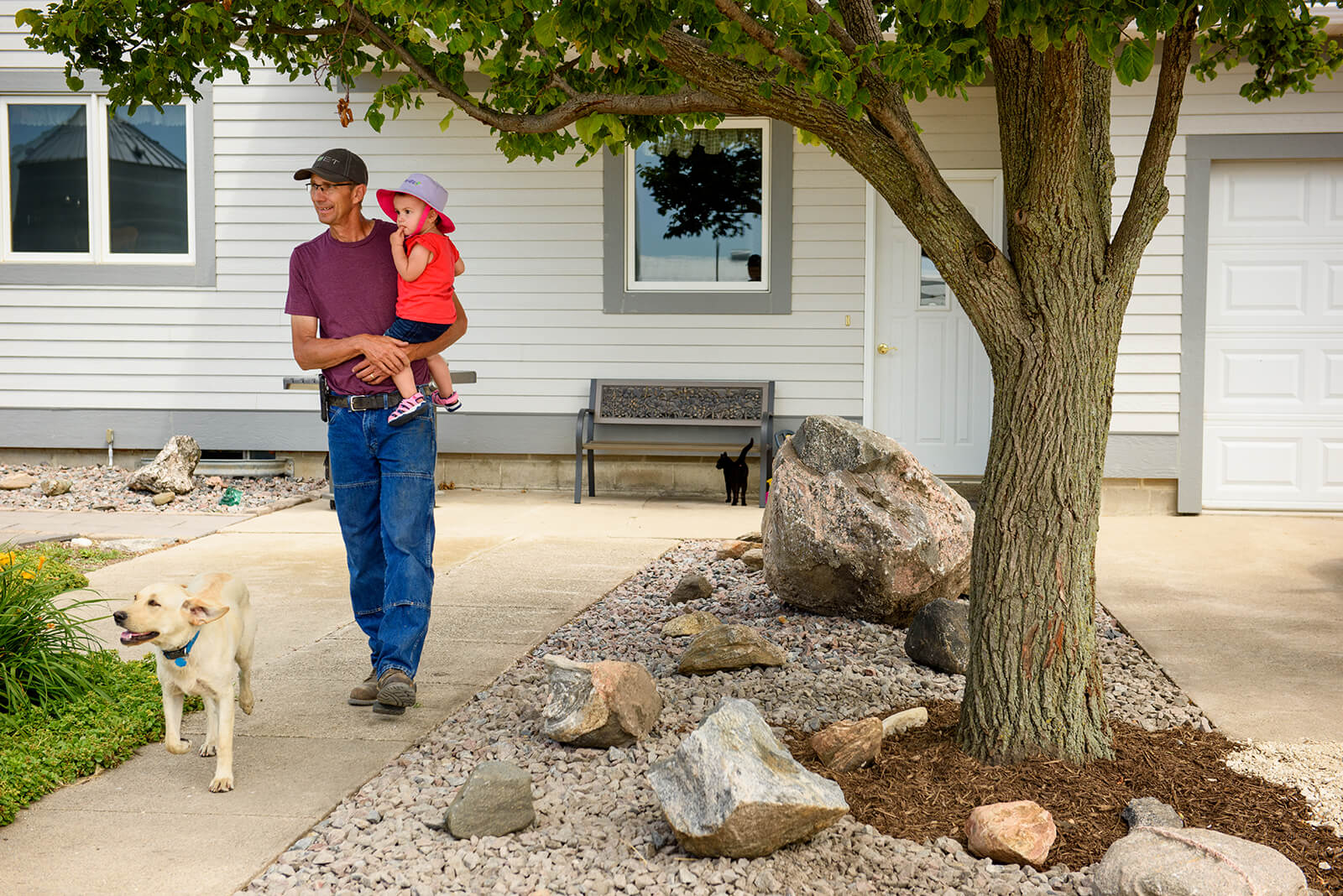
Top: The Rev. Steven Struecker carries his granddaughter Anna around his farm in Iowa. Bottom: Struecker prays with children at Immanuel Lutheran Church in Livermore.
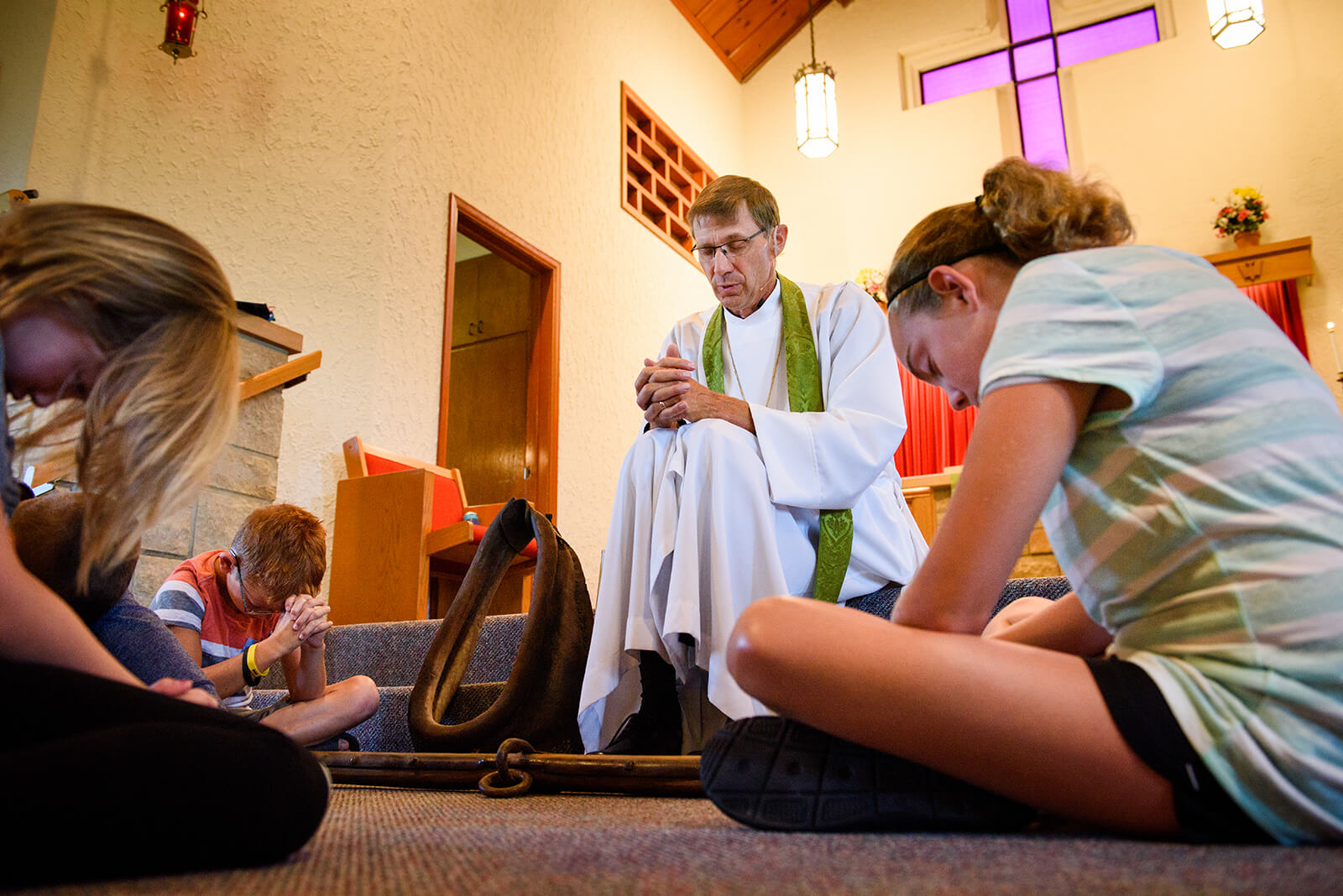
Serving the People of God
The congregations he serves are not able to financially support a full-time pastor — something he sees as an opportunity. He can farm and serve as their pastor.
It’s a difficult balance at times, and it isn’t for everyone. But Struecker rejoices in his situation: “I’ve just learned to do it. I trust that God will provide the energy and the opportunity to do what He desires me to do.”
Bi-vocational pastoral ministry wasn’t something he sought out. And yet he’s doing it by choice. There was a great need, and Struecker was asked to help fill that void. At the request of the pastor, Struecker helped two congregations who needed to hear the Word.
“If no one provided pastoral ministry to these churches, they would have had to close. And that hurts the community as well as the members,” he says.
The journey from fill-in to full-time pastor has been long. His formal training took 10 years to complete — first through the licensed lay deacon program at Concordia University, St. Paul, St. Paul, Minn., and then through his studies leading to ordination through the Specific Ministry Pastor program at Concordia Seminary, St. Louis.
Looking back, Struecker says that the road to ordination was not easy at all. But he wouldn’t change a thing. The two congregations he serves are worth it because of the people there. They need to hear God’s Word and receive His Sacraments according to His will.
About the two congregations, Struecker observes, “We have a variety of people — young and old. It’s a real wide range of people, and they get along well.”
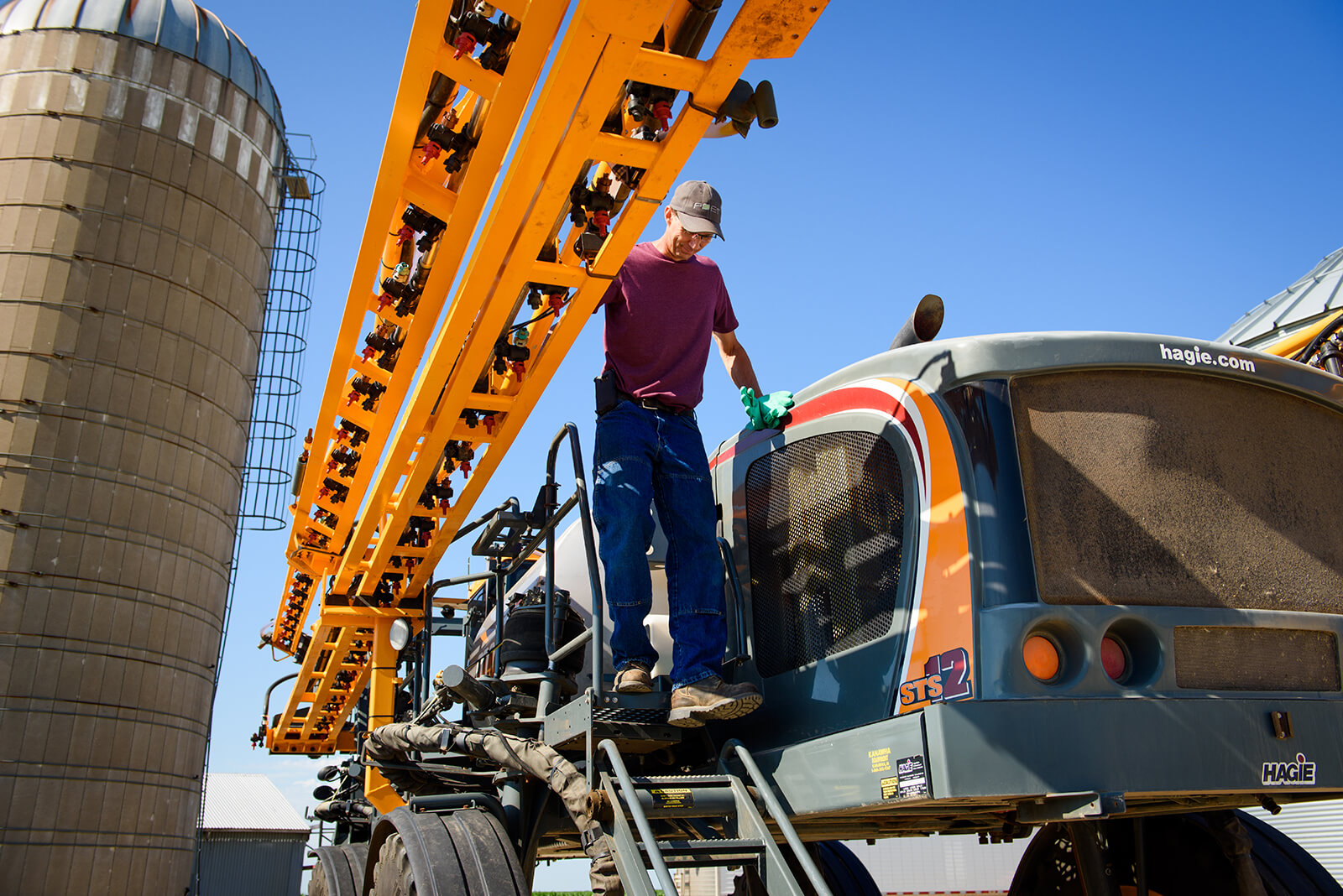
Top: Struecker prepares to spray his crops at the farm. Bottom: Zion Evangelical Lutheran Church in Lu Verne.
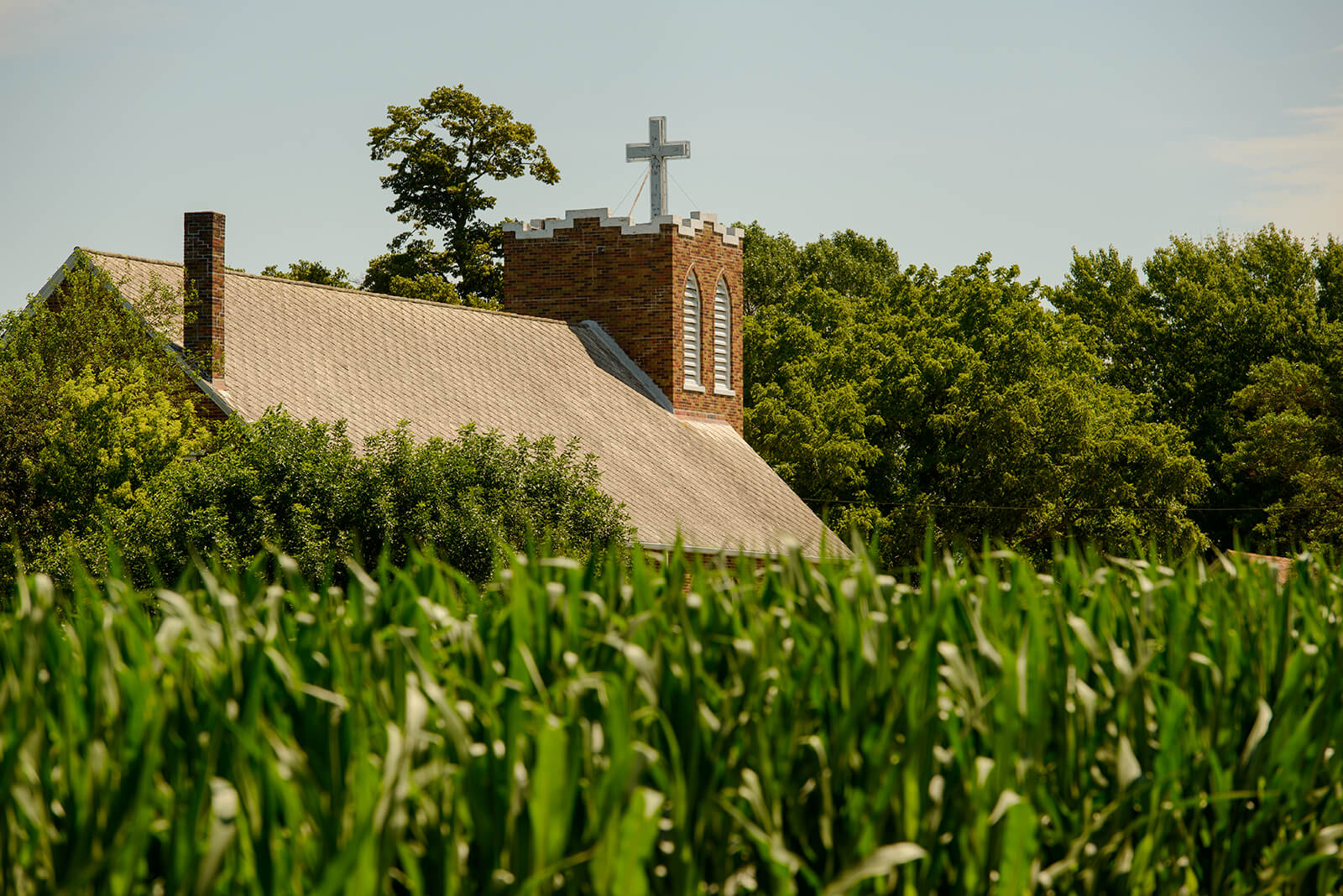 Rural & Small Town Mission
Rural & Small Town Mission
Rural and small-town churches face unique challenges and situations. For this reason, Struecker is thankful for LCMS Rural & Small Town Mission (RSTM). “It’s nice to know that there is a branch of the LCMS that is looking out for small churches in small towns and rural areas. The webinars and information available are very helpful.”
“LCMS RSTM partners with districts to support rural and small-town congregations and their leadership through mission and outreach training through our ‘Engaging’ events, our national mission conference, and other training and educational events throughout the Synod,” says the Rev. Todd Kollbaum, director of RSTM. “We also provide resources and training through monthly webinars and newsletters, as well as resource development based on requests and needs of congregations.”
Kollbaum noted that Struecker “began his involvement with LCMS RSTM when he attended our first Worker Priest Respite and Revitalization Retreat. He has remained involved with us as an example for others in bi-vocational ministry, participation in our national mission conference, and as a leader in rural mission activities.”

The Holy Spirit at Work
Throughout his studies toward ordination, Struecker says he received helpful advice and tips from professors, pastors and fellow students. One pastor said to him, “Just remember: You’re not God. God is in control. It’s not me the pastor that makes it work.”
“It’s my job to proclaim God’s Word, but it’s not my job to save people,” Struecker says. “That’s the Holy Spirit’s work, working through His Word.”
God uses this farmer to bring His Word to the people in this agricultural community. Many of Struecker’s conversations at church or in the community begin with discussions of the weather and the farming conditions. His work as a farmer is something his flock and community can relate to. But Struecker always turns the conversation to the Word of God and the hope that we have in Jesus Christ.
As Struecker talks about his bi-vocational role, it calls to mind the Parable of the Sower, who went out to plant seed … and that seed was the Word of God. Struecker serves as His undershepherd — sowing seed, tilling the ground and trusting in God to produce the harvest.
Learn More
- LCMS Rural & Small Town Mission: lcms.org/rstm
- Support the work of LCMS Rural & Small Town Mission: lcms.org/givenow/rstm
Pray with Us
The eyes of all look to You, O Lord, and You give them their food in due season. Thank You for Your gracious provision of both body and soul. Bless Pastor Steven Struecker and all those who serve rural and small-town congregations. As seasons change, let us ever cling to Your unfailing love in our Savior, Jesus Christ, in whose name we pray. Amen.
Share Jesus with the World
Your generosity today makes possible your Synod’s witness and mercy efforts both at home and abroad.
Give now
Are you looking to direct your gifts for work that’s more specific?
Visit the LCMS online ministry and mission catalog to find those opportunities most meaningful to you!
Don’t see what you’re looking for?
Contact LCMS Mission Advancement at 888-930-4438 or mission.advancement@lcms.org to talk about all the options available.

